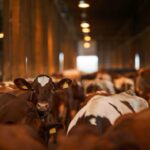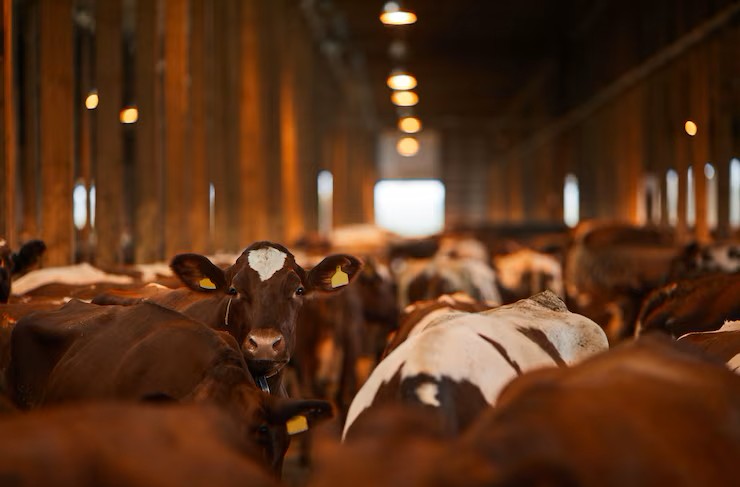Minister of Fisheries and Livestock Peter Kapala has lauded the significant strides achieved under the Jersey Breed Focused Dairy Development in Zambia (JBFDDZ) Project, emphasizing its transformative potential for the country’s dairy sector and smallholder farming communities. Addressing guests at the 2024 Jersey Herd Competition Awards Ceremony held at Tutatu Farm in Chongwe, Eng. Kapala highlighted the pivotal role of this initiative in providing smallholder dairy farmers with access to premium genetics and modern breeding technologies.
“This is a strategic opportunity for our farmers to upgrade their dairy herds and scale their farming operations,” Minister Kapala declared. He explained that the JBFDDZ project, implemented by ADRA Zambia with support from Jersey Overseas Aid, has successfully mobilized and made available 13 590 high-quality Jersey cattle breed semen straws. These semen straws are earmarked for distribution across Southern, Lusaka, Central and Copperbelt provinces, where smallholder dairy production holds great promise for rural economic growth.
By introducing superior Jersey genetics, the project aims to boost milk yields, improve herd health and enhance the overall profitability of dairy enterprises. “The project aligns with the government’s goal to make smallholder livestock investment a key driver of economic diversification and rural empowerment,” Eng. Kapala noted. He affirmed the government’s commitment to creating an enabling environment for livestock production—one that not only raises productivity but also strengthens food and nutrition security, generates employment and increases household incomes in rural areas.
During his remarks, the Minister also took time to congratulate Ms. Zewelanji Mbao, proprietor of Tutatu Farm and host of the awards ceremony, along with all the dairy farmers who excelled in the Jersey herd competition. Their dedication to breeding excellence, record‑keeping and farm management has set a benchmark for other producers and demonstrated the real-world benefits of genetic improvement programmes.
Joining the Minister was Carolyn Labey, Jersey Island’s Minister for International Development and Chairperson of the Jersey Overseas Aid Commission. Ms. Labey underscored the importance of continued international collaboration, recalling that the JBFDDZ project was launched in 2022 to address long‑standing challenges in Zambia’s dairy sector. “This partnership exemplifies how Jersey and Zambia can work together to foster sustainable agricultural growth,” she said, stressing the need for ongoing investment in dairy farming—especially as climate change and population growth put increasing pressure on food systems.
The awards ceremony at Tutatu Farm showcased the tangible outcomes of the JBFDDZ project. Farmers who participated in the Jersey herd competition demonstrated significant improvements in milk production per animal, herd fertility rates and overall herd conformation. These achievements reflect the benefits of targeted breeding strategies and farmer training, both of which are central components of the project.
Looking ahead, Minister Kapala urged all stakeholders—government agencies, development partners and farmers’ associations—to redouble their efforts in supporting smallholder dairy farmers. He called for expanded access to veterinary services, improved dairy value chains and facilitated market linkages that would ensure farmers reap the full rewards of enhanced milk production. “We must harness the momentum generated by the JBFDDZ project to build a competitive and resilient dairy sector that serves both domestic needs and regional markets,” he affirmed.
Zambia’s dairy sector has long been identified as an area with immense potential. Yet throughput has historically been constrained by low‑yielding indigenous breeds, limited access to quality inputs and weak infrastructure. The JBFDDZ project addresses these bottlenecks by combining genetics, technical training and supportive policy measures, thereby laying the groundwork for a vibrant smallholder‑driven dairy industry.
As the distribution of 13 590 Jersey semen straws commences, smallholder farmers across four provinces will have the opportunity to upgrade their herds and increase milk yields substantially. This, in turn, is expected to elevate household incomes, improve nutrition and stimulate rural economies. Through sustained collaboration and smart investments, the Jersey Breed Focused Dairy Development in Zambia Project stands poised to become a blueprint for livestock‑sector transformation in sub‑Saharan Africa.






